SUMMARY
This is AI generated summarization, which may have errors. For context, always refer to the full article.
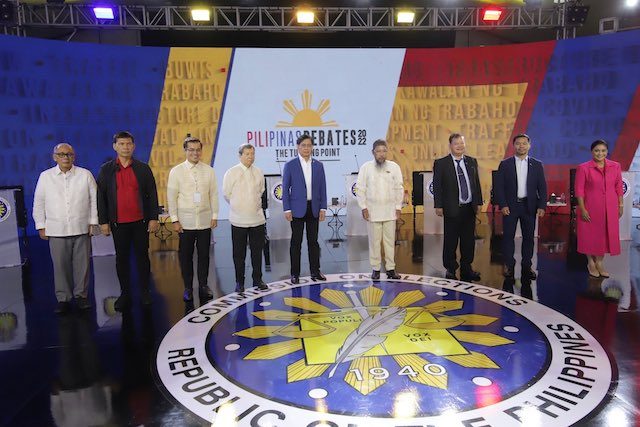
MANILA, Philippines – Climate change experts and environmental advocates got what they were waiting for during the Commission on Elections’ second presidential debate: an entire segment about climate change policy.
During the forum on Sunday, April 3, the nine presidential candidates in attendance were asked about how they would confront the myriad of sustainability challenges posed by a warming planet.
Due to the debate’s new format, not all candidates got to answer all the questions. Instead, they were grouped into threes and these groups got to answer only one question each related to climate change. A portion for rebuttals was used by some candidates to elucidate on aspects of their climate policy they could not mention during their group’s round.
The critical segment also revealed just how well-versed the candidates are in the current state of Philippine climate policy – where we are in the global climate negotiations, in transitioning to green energy, and responding to climate adaptation challenges like threats to food and water security.
Here’s a wrap of what the presidential aspirants said about climate change.
Question 1: How will you promote the use of renewable energy?
This question was directed to labor leader Leody de Guzman, Vice President Leni Robredo, and former Malacañang spokesperson Ernesto Abella.
Robredo proved she was the most knowledgeable about goals on climate mitigation, or the effort to reduce humanity’s carbon emissions, which includes leaving behind carbon-intensive energy sources like coal in favor of cleaner energy like solar or wind.
She mentioned the crucial United Nations climate change conference that took place in Glasgow last November 2021 (COP26) and the goal to reach carbon neutrality (or when the carbon we emit is completely absorbed and does not end up in the atmosphere, warming the planet) by 2050. The Philippines’ goal, called Nationally Determined Contribution, is less ambitious – reducing emissions by 75% by 2030, but mostly only if there is international aid available. But Robredo is right in that many climate advocates are concerned about the lack of a roadmap released by the government on how exactly this goal is to be reached.
She also was spot on in asking why the portion of renewable energy in our energy mix has been getting smaller and smaller.
De Guzman, as expected, condemned the influence that fossil fuel energy companies might have over those in power and called for more political will to fight such an agenda. He trumpeted the typical activist line that government should let go of coal. But this debate is more than just an issue of political will. Energy officials are concerned that renewable energy is not yet able to provide stable baseload power, hence the need to maintain some coal plants for now.
Robredo, in contrast, acknowledged that shifting to renewable energy can’t be done overnight and proposed a transition phase – speeding up the awarding of service contracts for the development of natural gas deposits so this cleaner source of energy can be used in the meantime.
Abella, meanwhile, said he is open to nuclear energy as an alternative power source and spoke of making agriculture more sustainable by using renewable energy in the sector as well.
During the rebuttal portion for this question, Manila Mayor Isko Moreno shared his plan of developing agrovoltaics in the country – or using the same plot of land to generate power through solar panels and plant crops.
“I will adopt on what Germany and Netherland is doing right now, agrovoltaic system wherein two-pronged – you produce food, you produce energy,” said Moreno.
Question 2: How will you ensure access to clean water for all?
This question was addressed to Manila Mayor Isko Moreno, former defense secretary Norberto Gonzales, and Senator Panfilo Lacson.
Moreno offered statistics, like how only 33% of households in Northern Luzon have access to clean potable water. His solution is to invest in watershed management – a solution that makes sense because water concessionaires in Metro Manila, for example, must already contribute to watershed protection since watersheds are vital to keeping rivers flowing.
If such water companies refuse to chip in, Moreno said, “Maybe I’ll review their contracts.” It’s a move that calls to mind President Rodrigo Duterte, who, spurred by public outcry during a summer drought, sought a review of the concession agreements of Manila Water and Maynilad with the government.
Gonzales’ solution would be to repair pipes used to distribute water to households, saying that, based on past experience in government, much water is lost when they travel through damaged pipes. He also pushed for a “national planning” on land use to set aside enough land for agriculture.
Lacson would focus on irrigating what irrigable land has yet to see irrigation facilities. This would help farmers get access to water needed for their crops. He would also increase government spending on research and development.
“Why don’t we invest a bigger amount of our national budget for research and development so that we can find a way to collect all the wasted rainwater and ensure it benefits our countrymen, not only for irrigation but for their daily needs?” said Lacson in Filipino.
Pacquiao supports the creation of a Department of Water, while Robredo said she would prioritize water resource management infrastructure and the identification of new sources of water.
Question 3: What programs will you pursue to protect the nutrition of our countrymen, especially the poor?
This question was directed to doctor Jose Montemayor Jr., Senator Manny Pacquiao, and Faisal Mangondato.
This was the question most candidates did not answer directly. Montemayor only said he would stop implementing the rice tariffication law since it was hurting the incomes of Filipino farmers. Pacquiao said he would stop the importation of agricultural goods. Mangondato pushed for federalism, claiming it was the only way to ensure enough funds would be devoted to agriculture and fisheries.
In the rebuttal portion after this question, De Guzman said he would back national land use planning “so that 30% of our agricultural land given to miners will be turned into agricultural land where we can plant food crops.”
Moreno, too, spoke up during the rebuttal portion but only to say he wants to subsidize fertilizers for farmers, given the huge spike in fertilizer prices hurting farmers’ incomes. He repeated his plan to impose a three-year moratorium on land conversion to make sure agricultural land are not turned into subdivisions or commercial developments. He would also crack down on the smuggling of agricultural goods. – Rappler.com
Add a comment
How does this make you feel?





![[Newspoint] Improbable vote](https://www.rappler.com/tachyon/2023/03/Newspoint-improbable-vote-March-24-2023.jpg?resize=257%2C257&crop=339px%2C0px%2C720px%2C720px)
![[Newspoint] 19 million reasons](https://www.rappler.com/tachyon/2022/12/Newspoint-19-million-reasons-December-31-2022.jpg?resize=257%2C257&crop=181px%2C0px%2C900px%2C900px)
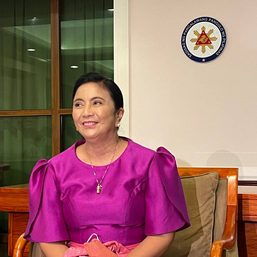












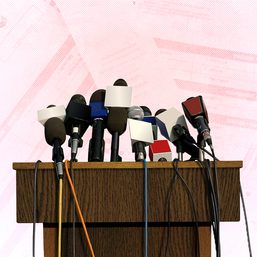
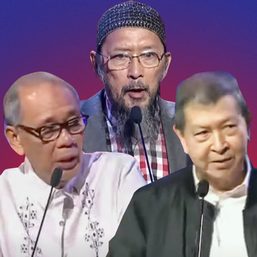
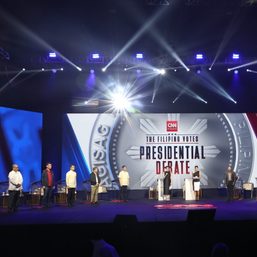
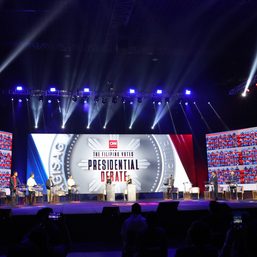
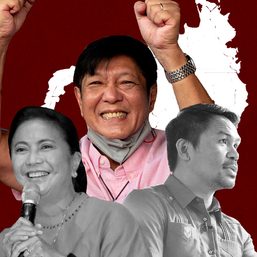
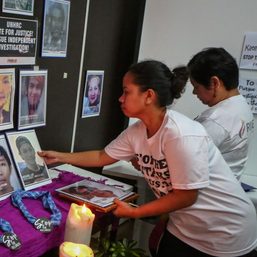

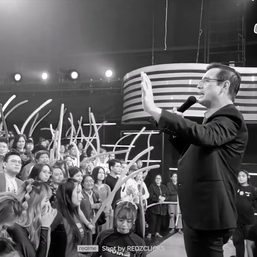
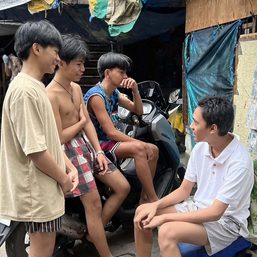
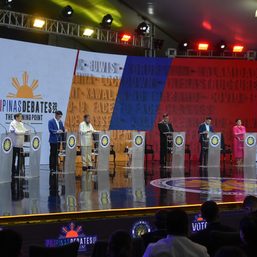
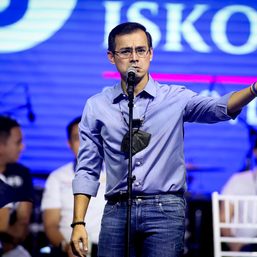
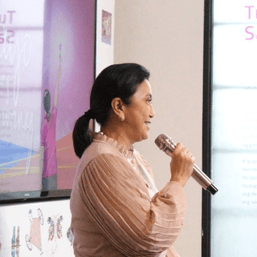

![[Newspoint] A fighting presence](https://www.rappler.com/tachyon/2024/07/thought-leaders-a-fighting-presence.jpg?resize=257%2C257&crop=441px%2C0px%2C1080px%2C1080px)
![[Closer Look] ‘Join Marcos, avert Duterte’ and the danger of expediency](https://www.rappler.com/tachyon/2024/06/TL-trillanes-duterte-expediency-june-29-2024.jpg?resize=257%2C257&crop_strategy=attention)

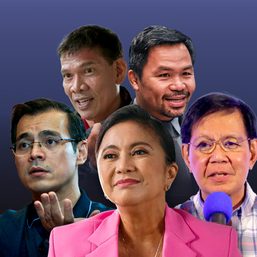
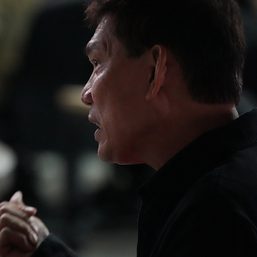
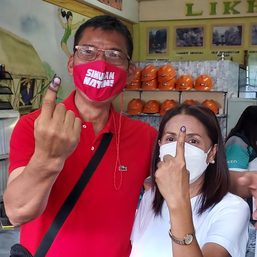
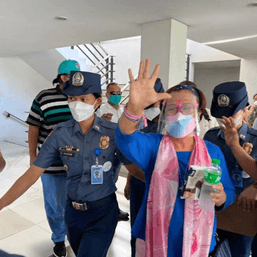





![[VIDEO EDITORIAL] Ang presscon na nag-backfire](https://www.rappler.com/tachyon/2022/04/animated-carousel-1.png?resize=257%2C257&crop=254px%2C0px%2C720px%2C720px)
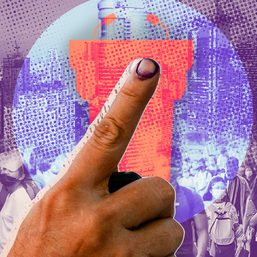
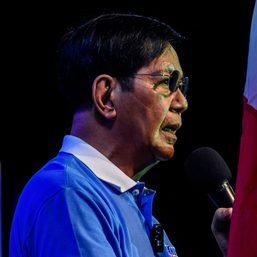
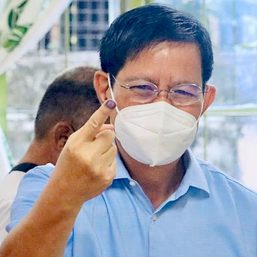
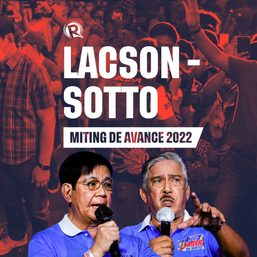
There are no comments yet. Add your comment to start the conversation.